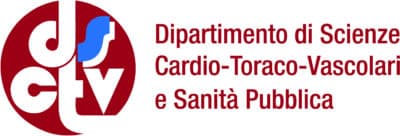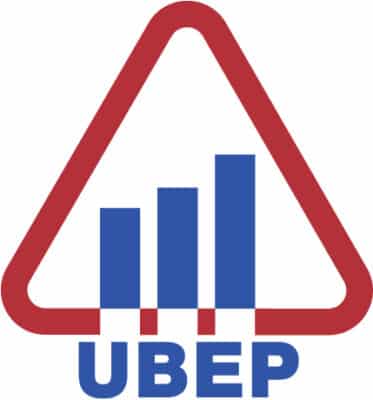

The Master in Pharmacoepidemiology and Evaluation of Integrated Care trains professionals with multidisciplinary skills.
Purpose of this course is providing the elements to plan and implement pharmacoepidemiology and integrated care evaluation studies, using real world data, obtained by integrating administrative and healthcare flows and medical registries, and to interpret the relevant scientific literature in a critical way.
It is a Level-2 annual, inter-university Master, provided in online and on-demand mode, and promoted by the Biostatic, Epidemiology and Public Health Unit of the Cardio-ThoraVascular and Public Healthcare Studies Department of the University of Padua, and by the Healthcare Research & Pharmacoepidemiology Centre, in partnership with 12 Universities, and with the additional participation of professors from 9 Institutions and Regions.
The Master in Pharmacoepidemiology and Evaluation of Integrated Care is divided into two training areas, provided online and on-demand through the Moodle multimedia platform.
The first part provides basic knowledge on epidemiology, biostatistics and research planning, and covers the main healthcare information systems, and data integration and management methods. Then, it describes the main planning projects and statistical techniques commonly employed in pharmacoepidemiology. The last part delves on the main methodological principles required to evaluate integrated care, and provides the fundamentals on healthcare regulatory aspects.
The Master in Pharmacoepidemiology and Evaluation of Integrated Care provides technical and scientific training to professionals with multidisciplinary skill, working in the healthcare sector, to help them plan and conduct observational epidemiology studies within the pharmacoepidemiology and integrated care evaluation field.
Career opportunities include pharmaceutical companies, national healthcare service institutions and universities.
The Master in Pharmacoepidemiology and Evaluation of Integrated Care provides training on the following topics:
Module 1 – BIOSTATISTICS AND EPIDEMIOLOGY
Professor: Ileana Baldi – University of Padua
This module promotes the development of basic competences in epidemiology, biostatistics and research design.
Module 2 – HEALTHCARE INFORMATION FLOWS AND SOURCES
Professor: Dr Salvatore Scondotto – Siciliy Region
This module describes the main healthcare information systems, and related data integration and management methods for pharmacoepidemiology and integrated care evaluation studies.
Module 3 – PHARMACOEPIDEMIOLOGY 1
Professor: Giovanni Corrao – University of Milan-Bicocca
Module 4 – PHARMACOEPIDEMIOLOGY 2
Professor: Francesco Barone Adesi – Polytechnic University of the Marche Region
The two modules describe the main planning projects and statistical techniques commonly employed in pharmacoepidemiology.
Module 5 – INTEGRATED CARE EVALUATION METHODS
Professor: Flavia Carle – Polytechnic University of the Marche Region
This module covers the main methodological principles required to evaluate integrated care and the cost-effectiveness ratio.
Module 6 – REGULATORY ASPECTS AND POLICIES
Professor: Nello Martini – ARC
This last module explores the fundamentals of healthcare regulatory aspects, with a focus on Real World data usage.
Director: Cristina Canova, University of Padua
Co-Director: Matteo Franchi, University of Milan-Bicocca
12 participating Universities: University of INSUBRIA, MILAN-BICOCCA, PADUA, PALERMO, PAVIA, WESTERN PIEDMONT, SASSARI, TURIN, TRIESTE, UDINE, VERONA, Polytechnic University of the MARCHE Region.
9 participating Institutions and Regions: Istituto Superiore di Sanità, Azienda Ospedaliera Udine, Azienda Provinciale Sanitaria di Trento, Emilia-Romagna, Lombardia, Marche, Sardegna, Sicilia, Veneto.
The general ranking of merit will be published on the Italian page of this Master according to the timing provided in the Call.
Information
FAQ
Even though the course is online, attendance is mandatory. The minimum attendance requirement is 70%. However, since the video-lessons are pre-recorded, and they can be watched 24/7, it will be very easy to stay in-course. The Academic Office and professors are willing to cater to any student with heavy commitments or intense work schedules.
- There is no registration fee for students with disabilities, who have a disability with invalidity between 66% and 100% or with certification pursuant to law n.104, who will therefore only pay the pre-enrolment fee, the insurance and stamp duty
- PA110 with Honors: Public Administration employees who enroll in our master’s degree enjoy a discount of 330 euros on the contribution of the second installment
- There is the possibility of supernumerary enrolment for University staff in order to allow continuous and permanent updating. The enrolment fee for the technical and administrative staff of the University is parameterised to the minimum enrolment fee set out in art. 24, paragraph 1 of these Regulations, and is equal to 20% of the quota. In the event that the technical and administrative staff of the University is in possession of the requirements for admission to the Course, once the course is completed, he/she will be able to obtain the relevant Diploma or Certificate; If they do not meet the admission requirements, they may be admitted as an auditor and obtain a certificate of participation
The Master is online, and may be followed also by students working full-time jobs, since it will be provided on demand on UniPD Moodle multimedia platform.
It features on-demand lessons, as it was designed for students and professionals who wish to conciliate other activities and professions with the need to qualify or specialize themselves further.
The course covers many interrelated topics, divided into six modules, with periodical homework to test the competences acquired. Homework is also provided on-demand. Interaction between students and professors will be frequent, and facilitated through Moodle Forum.
The second part of the course will include a project work (approximately around June-August) during which students will draft a protocol, a study plan, and real data analysis concerning the concepts acquired through the Master, with the option of including cases promoted by students, in agreement with the tutor. The project work will also be presented online, on the Zoom platform.
The final evaluation will refer to both the homework completed during the year and to the project work.
At the end of the lessons, students – and especially those already working for the National Healthcare System or in public or private healthcare research fields – will have the chance to complete an internship in one of the Master partner Universities or Institutions.

